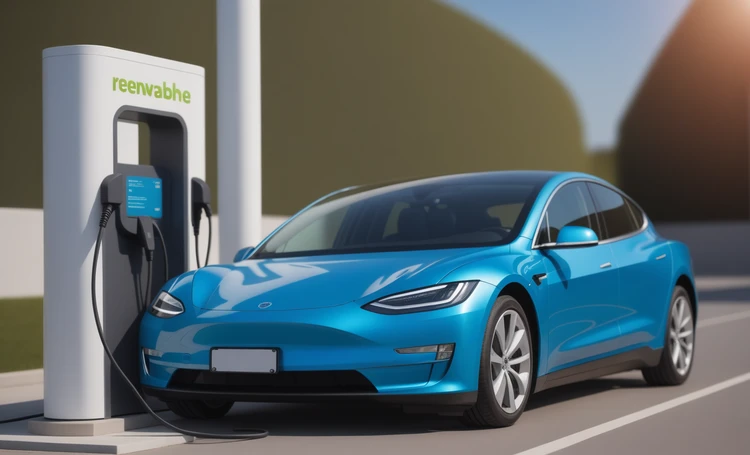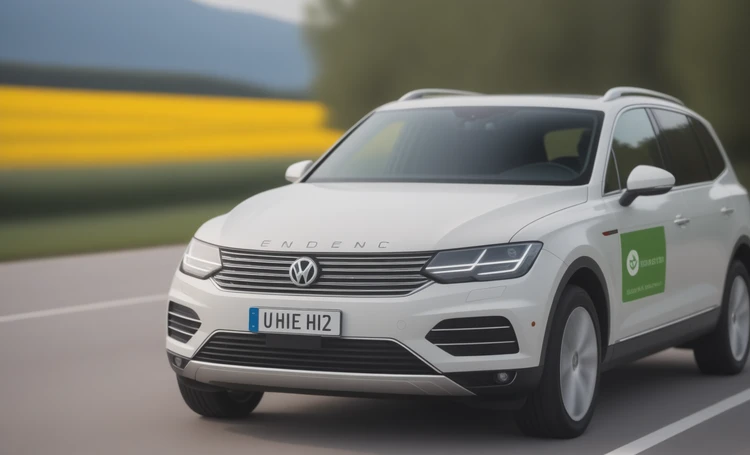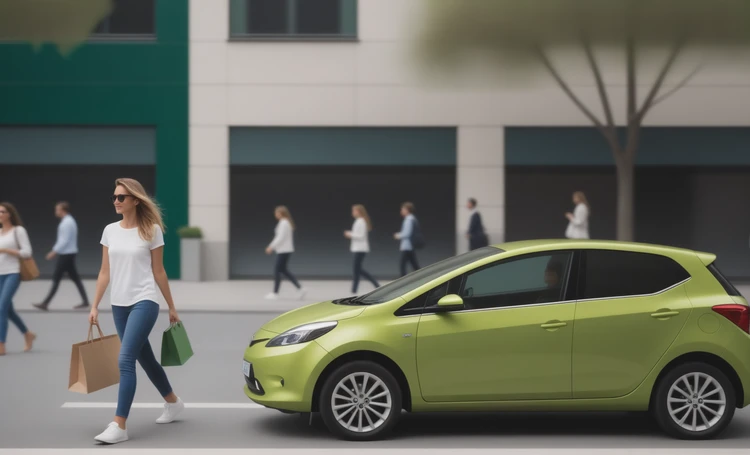🌿 Environmentally friendly cars: a new step towards a green future
Attention to the environment is becoming an integral part of modern society, and the automotive industry is no exception. Every year, learn more about green cars here Manufacturers are trying to reduce the impact of vehicles on the environment by developing environmentally friendly cars that reduce emissions and increase the sustainability of ecosystems.
🛠️ Clean car technologies
Electric motor: the heart of an ecological car
Electric vehicles (EVs) are becoming increasingly popular due to their zero emissions and low operating costs. Without the use of fossil fuels, these cars are considered one of the most important efforts in the fight against climate change.
- Advantages of an electric motor:
- Zero carbon emissions during operation.
- Fewer moving parts reduce maintenance costs.
- High torque and smooth operation.
Renewable energy for charging
Using renewable energy to charge EVs significantly improves their environmental performance. Solar panels and wind turbines can charge the car, making the entire vehicle operation completely carbon neutral.
- Methods of charging eco-friendly cars:
- Home charging stations with solar panels.
- Public charging stations powered by renewable energy.
- Portable solar chargers.
🌱 Sustainable production and materials
Ecological materials in production
Producing green cars also includes the use of sustainable and recyclable materials. Innovative materials such as bioplastics and recycled textiles are reducing waste and carbon footprints during production.
- Innovative materials:
- Bioplastics made from plant fibers.
- Recycled plastic and rubber for interior trim and tires.
- Lightweight and durable composite materials for the body.
Waste reduction and recycling
In addition to using sustainable materials, auto manufacturers are focusing on minimizing waste at all stages of production. Recycling and the ability to reuse components at the end of a vehicle's lifespan play a key role in the sustainability of eco-friendly vehicles.
- Waste reduction strategies:
- Programs for the return of old cars for recycling.
- Repair suitability and modularity of components.
- “Responsible Repossession” Policy for Vehicle Recycling.
🔄 Life cycle of an ecological car and its impact
Full life cycle of a car
Life cycle analysis of a vehicle allows you to assess its overall impact on the environment, from production to disposal. Green cars promise a lower carbon footprint across the board, including less resource consumption and reduced emissions.
- Life cycle elements:
- Extraction and processing of raw materials.
- Car production and assembly.
- Operation and Maintenance.
- Disposal and recycling of waste materials.
Environmental certificates and standards
To confirm their environmental friendliness, cars must comply with a number of international environmental standards and regulations. Certifications such as Euro 6 and EPA indicate that the vehicle meets stringent environmental requirements.
- Standards and certificates:
- Euro 6 and more stringent European Union standards.
- EPA (Environmental Protection Agency) standards in the USA.
- Green NCAP and other independent environmental ratings.
📈 Eco-car market statistics and forecasts
Market analysis and trends
The current growth trend of the eco-friendly car market is confirmed by statistics and analyst forecasts. Investments in sustainable technologies and infrastructure, as well as government support through subsidies and incentives, are helping to increase the market share of eco-vehicles.
- Key market indicators:
- Annual sales and market share of new cars.
- Investments in development and production.
- Government incentives and subsidies for buyers.
Forecasts for the future
Given current trends and innovations, we can expect that by 2030, a significant portion of the vehicle fleet will consist of environmentally friendly vehicles. Integration with renewable energy sources, as well as improved battery and charging technologies, will support this transition.
- Expected changes:
- Growing share of electric vehicles and hybrid cars.
- Development of charging station infrastructure.
- Strengthening legislation in the field of environmental standards.
🛣️ Impact on infrastructure and urban environment
Development of infrastructure for eco-vehicles
Adapting city infrastructure to accommodate clean vehicles plays a key role in promoting sustainability. The creation of networks of charging stations, charging parking bays and service centers specialized in servicing eco-vehicles is an important step towards a green future.
- Key development aspects:
- Increasing the number of charging stations and their availability.
- Integrating charging into residential and commercial buildings.
- Development of service infrastructure to support eco-cars.
Changes in the urban environment
Environmentally friendly cars help reduce pollution levels in cities, thereby improving the quality of air and the lives of citizens. Cities are adapting by creating “green zones” that limit traditional vehicles, which also encourages citizens to switch to eco-mobility.
- Positive changes:
- Reducing noise and pollution.
- Improving the quality of the urban environment and public health.
- Increase in the number of “green” and pedestrian zones.
📊 Economic aspects of green cars
Cost of ownership and operation
Owning an eco-friendly car can be cost-effective in the long run thanks to subsidies, tax breaks and reduced fuel and maintenance costs. As battery costs fall and mass production continues, eco-cars continue to become more affordable.
- Saving factors:
- Tax benefits and subsidies.
- Lower fuel and maintenance costs.
- High residual value due to long service life.
Contribution to the economy
The production and sale of clean cars also helps create new jobs and stimulate the economy through investment in innovation and infrastructure. Increasing demand for eco-vehicles is leading to the growth of related industries such as the production of chargers and the development of energy-saving technologies.
- Economic benefits:
- Creation of new jobs and increase in the number of specialists.
- Increased investment in environmentally friendly technologies.
- Increasing export potential through innovative products.
💡 Results and prospects
Environmentally friendly cars today are not just an alternative to traditional vehicles, but also an important element in the strategy for the sustainable development of cities and countries. Continued improvements in technology, increased availability and improved infrastructure will only accelerate the transition to eco-mobility. Every year they become not only more accessible, but also more advanced in terms of technology and comfort.
- The path to a sustainable future:
- Integration of environmentally friendly cars into society.
- The development of technology and lower prices makes eco-cars accessible to a wide range of consumers.
- The importance of environmentally friendly cars for achieving global environmental goals.
Environmentally friendly cars are not just a trend, they are part of the solution to global environmental problems. Their role in environmental protection and contribution to sustainable development will only increase. With the many benefits they provide, we can't help but recognize the importance and potential of eco-vehicles for our future.



